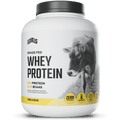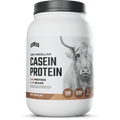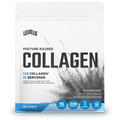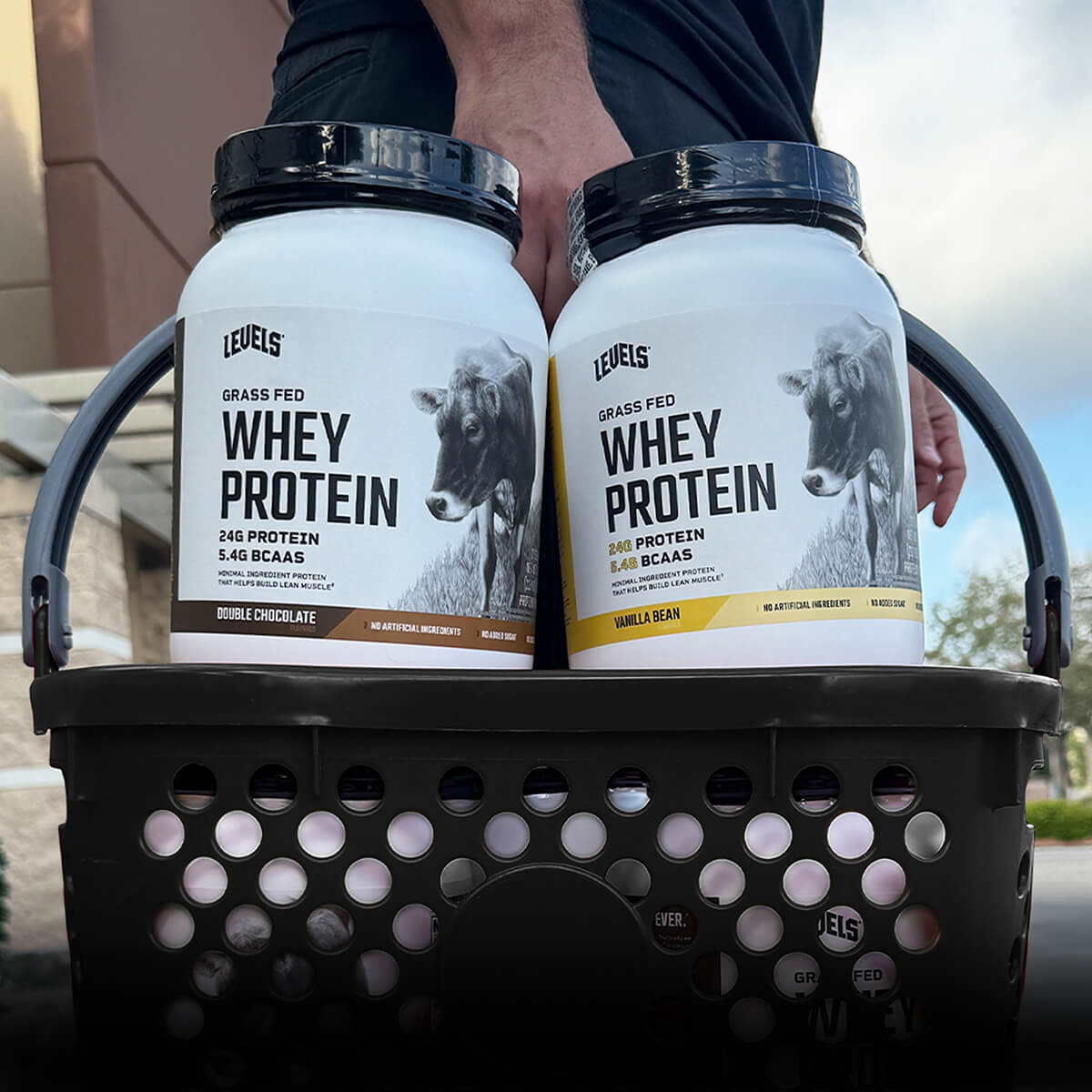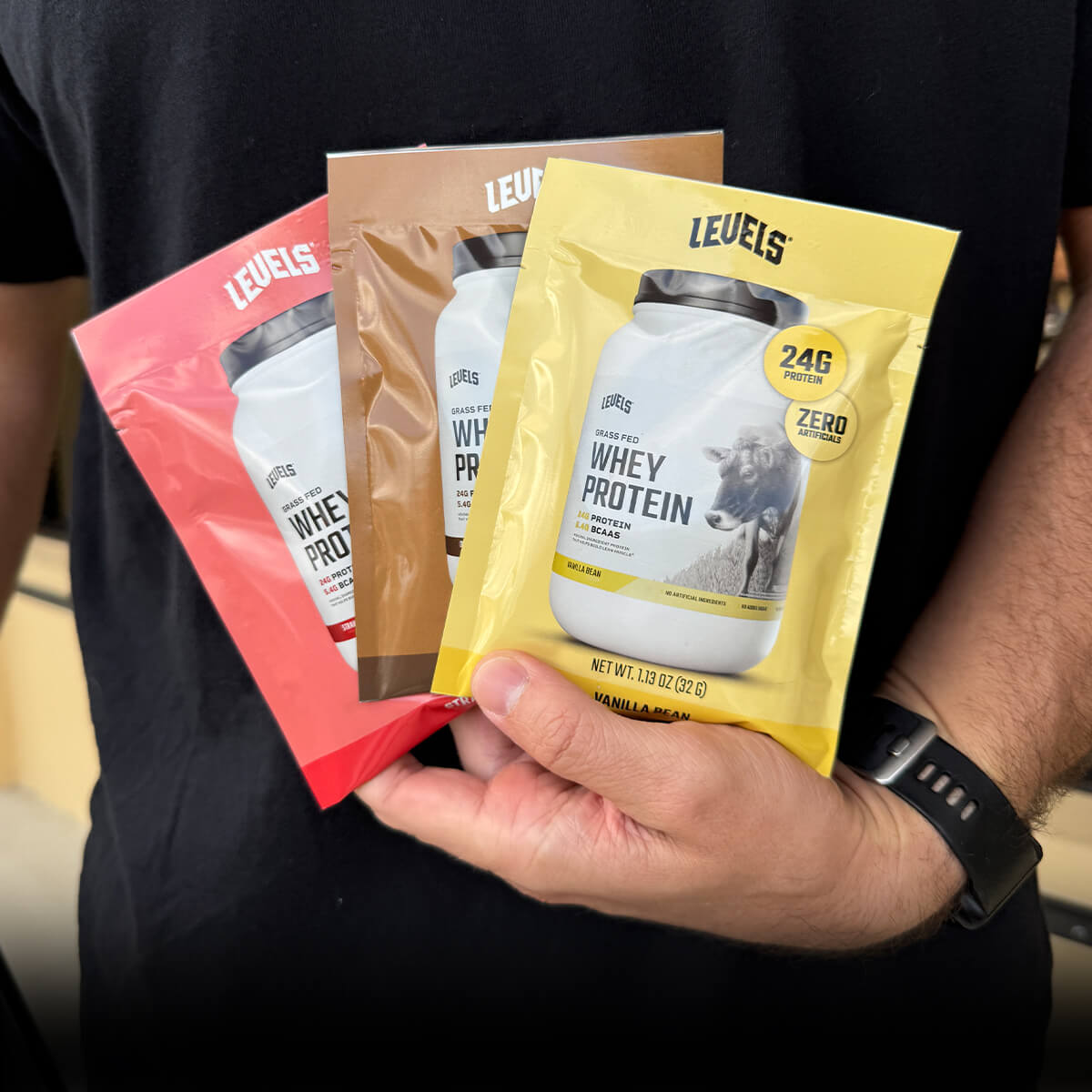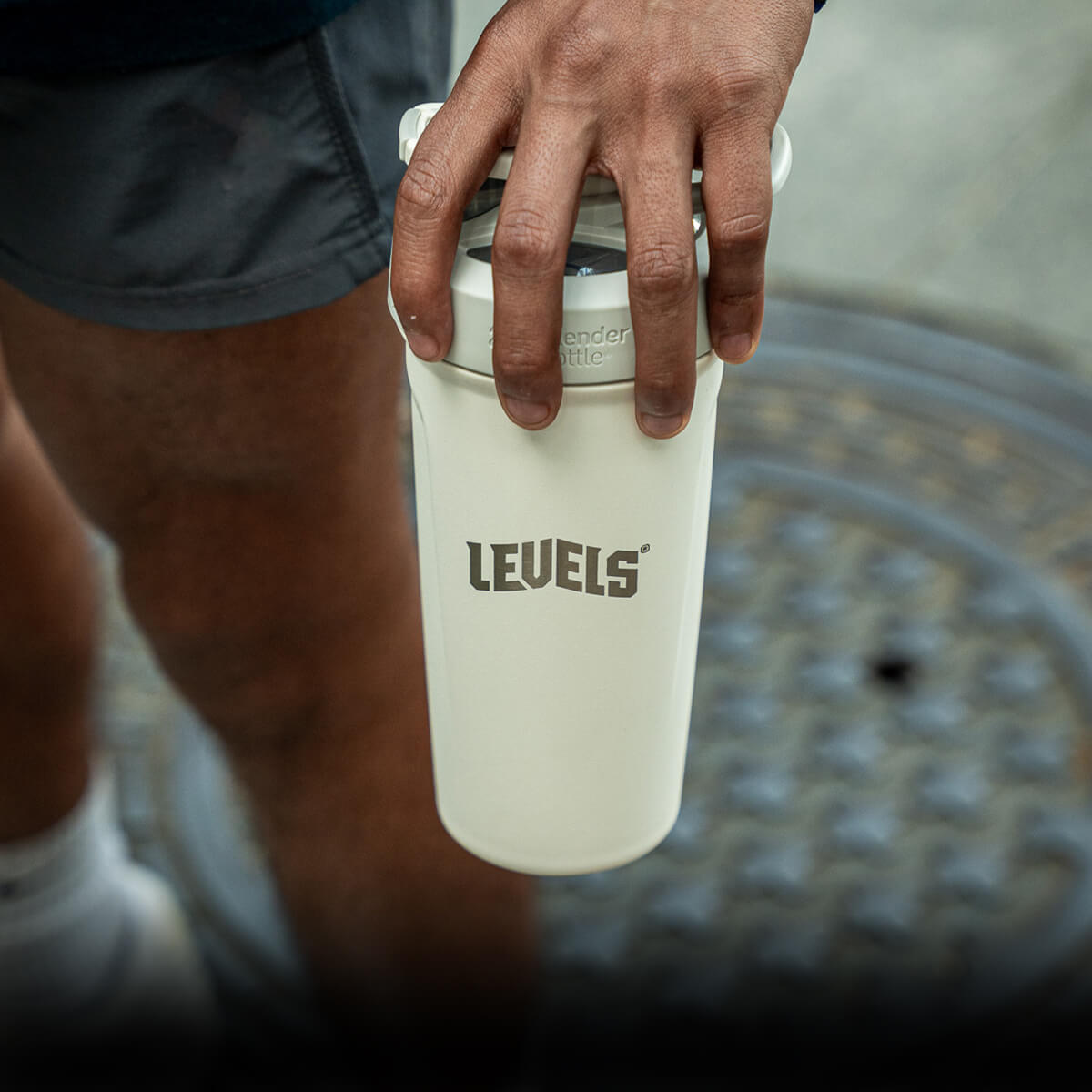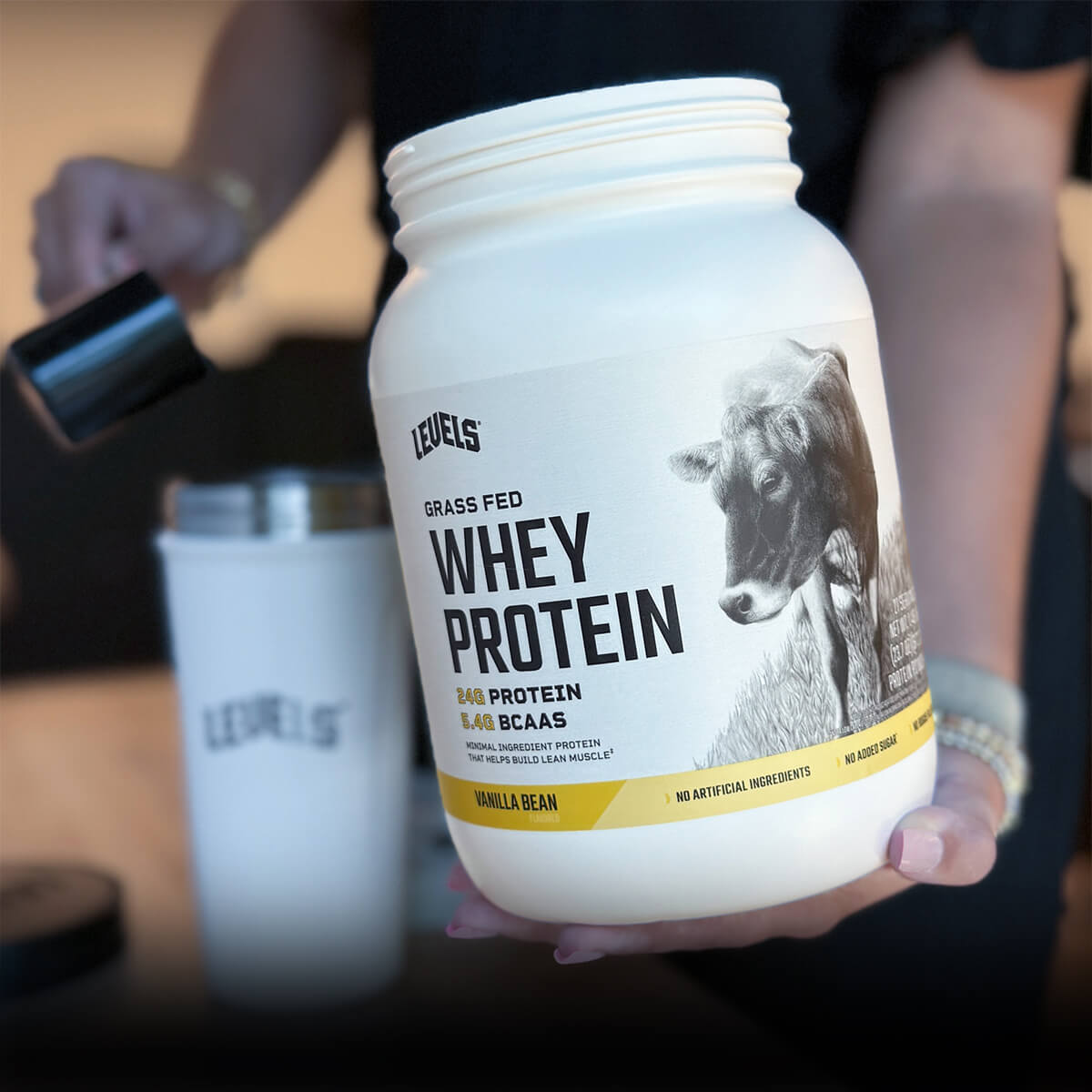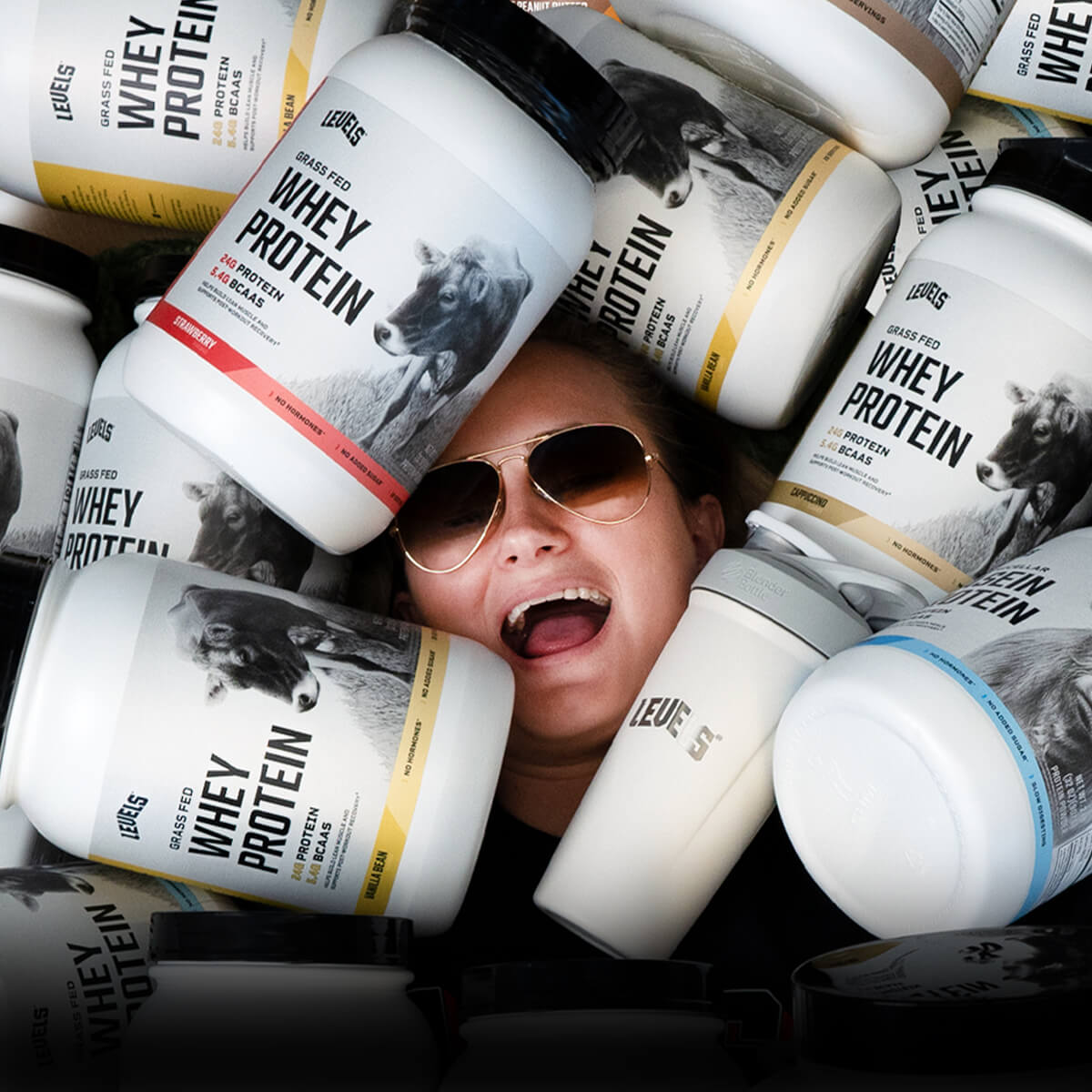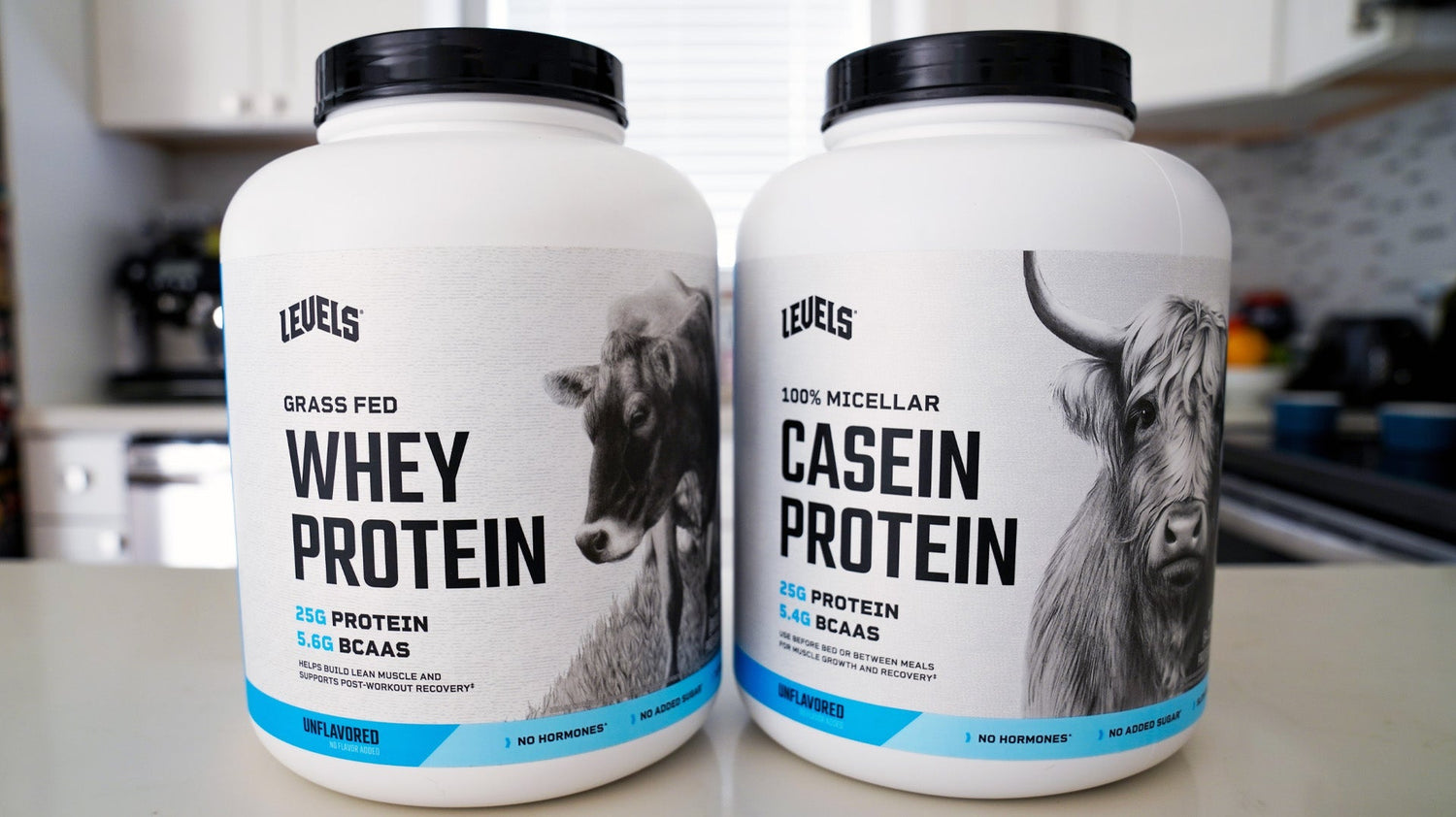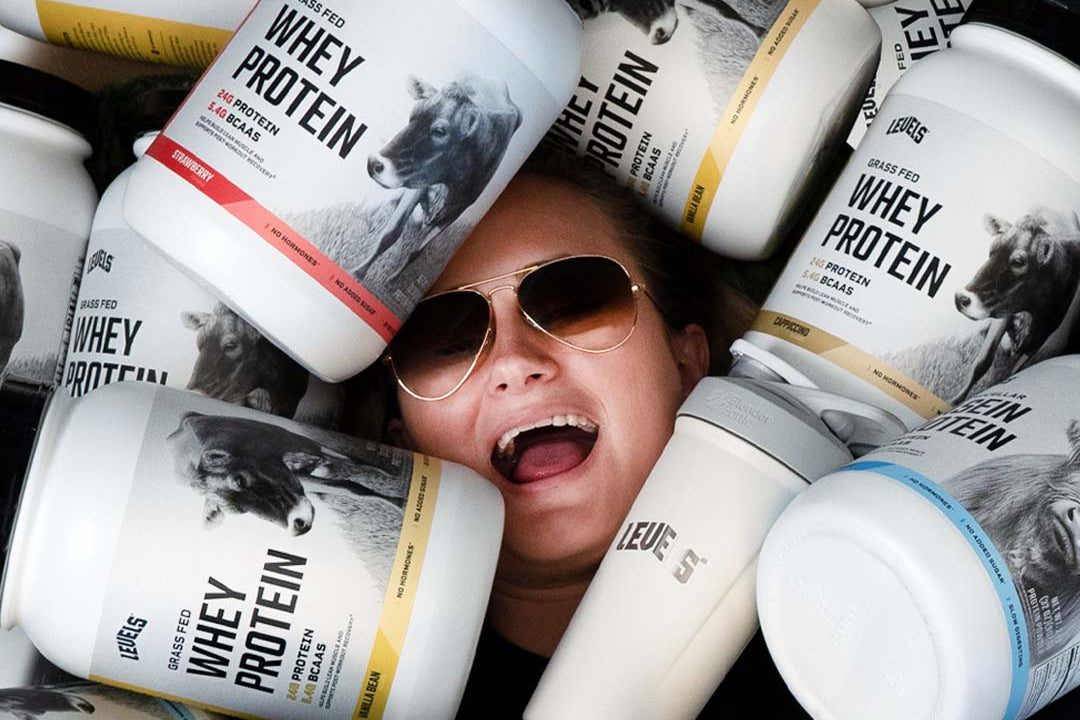Whey and casein are two of the most popular supplements for athletes and exercise enthusiasts. Both of these classic milk-derived proteins are highly effective choices for adding extra protein to your diet, but they also have key differences.
And if you want to use supplements to boost your protein intake and enhance your fitness, muscle-building, and fat loss results, understanding the advantages and drawbacks of each type of protein is essential.
In this article, you’ll learn the differences between whey and casein, the pros and cons of each, and how to choose the best protein supplement for your goals and needs.
What Is Whey Protein?
Whey protein is a type of dairy protein. Most whey used in protein supplements is a byproduct of cheesemaking.
Additionally, whey protein consists of several different protein fractions, or related but distinct proteins. The major protein fractions in whey are called beta-lactoglobulin, alpha-lactalbumin, bovine serum albumin, and immunoglobulins[*].
Whey protein is a complete protein, meaning it contains all the essential amino acids your body can’t produce on its own.
The two most popular forms of whey protein powder are whey protein concentrate and whey protein isolate.
A 30-gram scoop of unflavored whey protein concentrate contains about 130 calories, 25 grams of protein, 2 grams of fat, and 3 grams of carbs.
What Is Casein Protein?
Like whey protein, casein protein is also a type of complete milk protein. In fact, casein is responsible for the white color of milk[*].
And like whey, the majority of casein used in protein supplements comes from commercial cheesemaking.
But unlike whey protein, casein protein exists in the form of micelles or non-water-soluble arrangements of protein molecules that are bound together[*].
The protein fractions in casein are called alpha-casein, beta-casein, and kappa-casein[*].
Also, due to its phosphorus content, casein protein coagulates or “cakes” below a pH of 4.6, which gives it unique properties not found in other proteins[*].
A 30-gram scoop of micellar casein contains about 105 calories, 21 grams of protein, 1 gram of fat, and 2.5 grams of carbs.
In the next section, you’ll learn how whey protein and casein protein compare to one another!
Whey Protein vs. Casein Protein
On the surface, whey and casein protein don’t appear to be very different. After all, they’re both complete proteins derived from milk.
However, that’s where the similarities end. Casein tends to be more expensive than whey protein, harder to mix, and less pleasant-tasting.
But the most fundamental differences relate to the way your body digests each form of protein.
Casein contains phosphorus, which causes the protein to “cake” in acidic environments--including your stomach[*]. As a result, casein digests very slowly.
On the other hand, whey protein is one of the fastest absorbing proteins[*].
What do different protein absorption rates mean for your results? Keep reading to find out!
Pros and Cons of Whey Protein
Think of whey as an “instant-release” protein. When you drink a whey shake, your blood amino acid levels rise within an hour, then peak after about 90 minutes[*].
The benefits of whey protein are no secret. Numerous studies show that supplementing whey protein can:
- Speed recovery from exercise[*][*]
- Increase lean muscle mass compared to other protein sources[*]
- Reduce appetite and increase fat loss[*][*]
- Help you retain lean muscle mass during fat loss[*][*]
The takeaway: the fast-acting nature of whey protein makes it the undisputed champ for post-workout consumption.

Additionally, most people with milk allergies can tolerate whey supplements--particularly whey protein isolate, thanks to its extremely low lactose content[*].
Therefore, unless you're one of the few people who are severely lactose intolerant, there really aren't any downsides. However, as we'll discuss in a moment, the rapid absorption of whey means it's less suitable for certain uses than casein.
Subscribe to get the latest advice, sales, discounts, product drops and more. Join now and get 15% off your first order.
Pros and Cons of Casein Protein
Due to its unique properties, casein protein absorbs far more slowly than whey protein.
When you drink a casein shake, your blood levels of amino acids stay elevated for over 5 hours[*].
But compared to whey protein, casein protein is only half as effective at increasing protein synthesis[*]. Protein synthesis refers to your body’s process of building new proteins, and it's necessary for muscle growth and repair.
However, that doesn’t mean there are no benefits to taking casein supplements. According to research, casein protein powder can:
- Increase overnight muscle-building when taken before bed[*]
- Reduce your appetite for extended durations[*][*]
- Enhance the absorption of calcium[*]
Basically, whereas whey is “instant-release,” you can think of casein protein as a “time-release” alternative.
The only exception is hydrolyzed casein, which has fast-acting properties similar to whey but also tends to have a bitter, unpleasant taste[*].
By default, casein proteins are far more difficult than whey to dissolve in water. However, some manufacturers work around this issue using a special spraying process during production[*].
And finally, people with milk allergies should use caution with casein protein. While lactose intolerance is more prevalent, some researchers think that casein is also a common culprit in dairy allergies[*].
How to Choose Between Whey and Casein
As we’ve already discussed, whey protein and casein protein have significant differences. And those differences make each protein suitable for different purposes.

Whey Protein for Post-Workout
Because it absorbs faster and increases protein synthesis more than casein, whey protein is the superior choice for a post-workout shake[*].
At Levels, we recommend 40 grams of whey protein concentrate post-workout. From there, you can also experiment with higher doses.
Casein Protein Pre-Bed
Compared to whey protein, casein protein is better at preventing protein breakdown in muscles[*].
In other words, while whey is good at boosting muscle-building, casein may help you retain muscle mass over time more effectively.
And as research shows, taking 40 grams of casein protein before bed can boost recovery, increase muscle-building, and reduce the breakdown of muscle[*].
While not everyone needs a pre-bed protein shake, there’s no question that a 40-gram micellar casein or calcium caseinate shake before bed is the way to go if you wish to try this strategy.
Meal Replacement Shakes
What about protein shakes for other situations, such as meal replacement purposes?
If you want to increase your daily protein intake or eat healthily on the go, a meal replacement shake that includes some healthy fats or carbs is a handy and proven strategy.

For meal replacement purposes, here’s what we recommend:
- 40 grams of whey protein if you want to boost muscle-building
- 40 grams of casein protein to prevent muscle loss and for long-lasting appetite reduction
- 20 grams of whey protein + 20 grams of casein for a balance of muscle-building and appetite reduction
For best results, add a 2-to-1 ratio of carbs or fats (by calories) to your meal replacement shakes. For example:
- 40 grams of protein with 80 grams of carbs (from oatmeal or fruit, for example) for a 480-calorie shake
- 40 grams of protein with 36-40 grams of fat (from MCT oil, virgin coconut oil, or nut butter) for a 480- to 520- calorie shake
You can also try combining carbs and fats in the same meal replacement shake, if you wish.
The Bottom Line
Whey protein is one of the fastest absorbing proteins, while casein protein is one of the slowest.
Post-workout, whey protein is a far better choice than casein. Whey is also the best choice to build muscle, speed up your recovery, and retain lean muscle during fat loss.
That said, casein protein is better at preventing the breakdown of muscles. Because it sticks around in your stomach for a lot longer, the “time-release” effect makes casein an excellent choice for a pre-bed shake.
Here’s the bottom line: active people should be using whey protein post-workout, period. Whey protein also works well for meal replacement purposes, alone or combined with casein.
